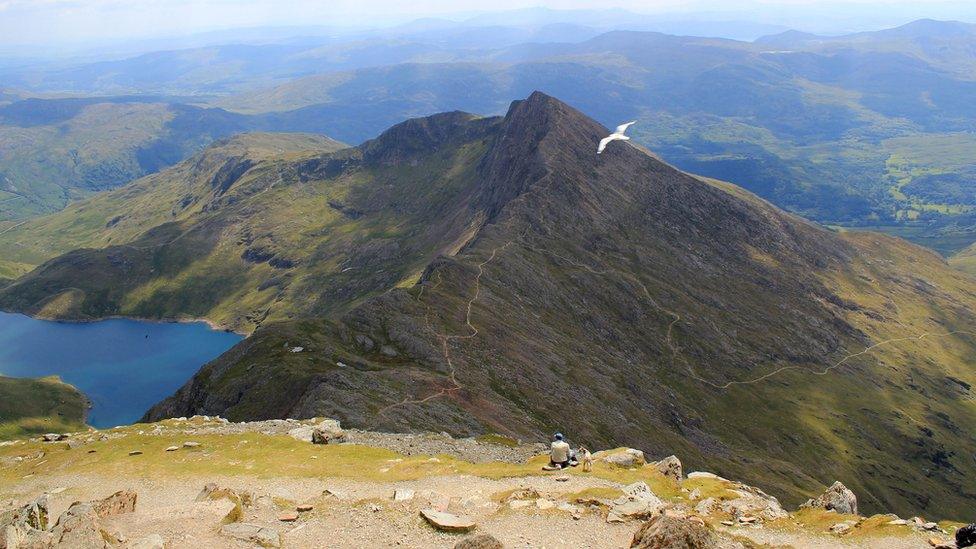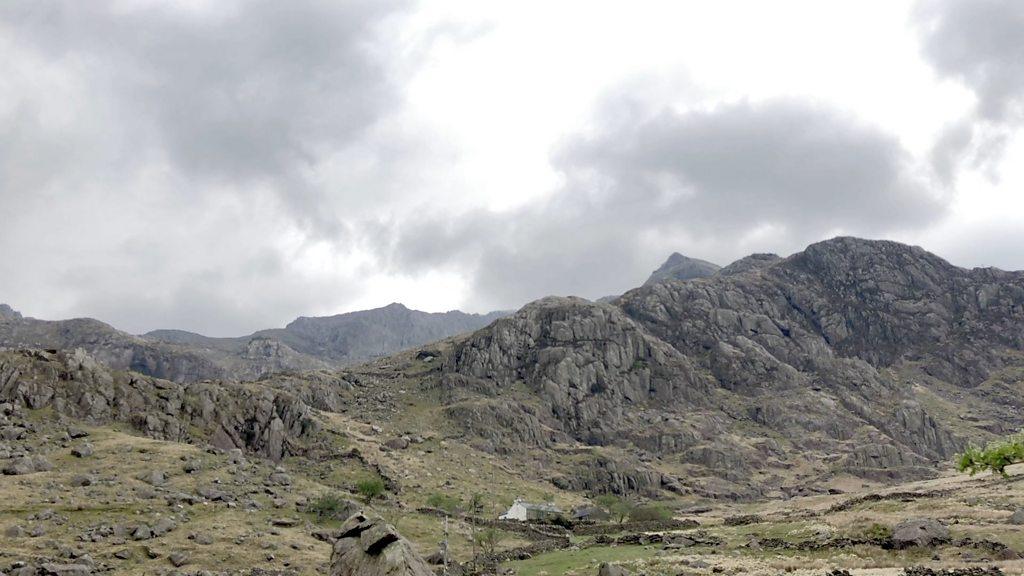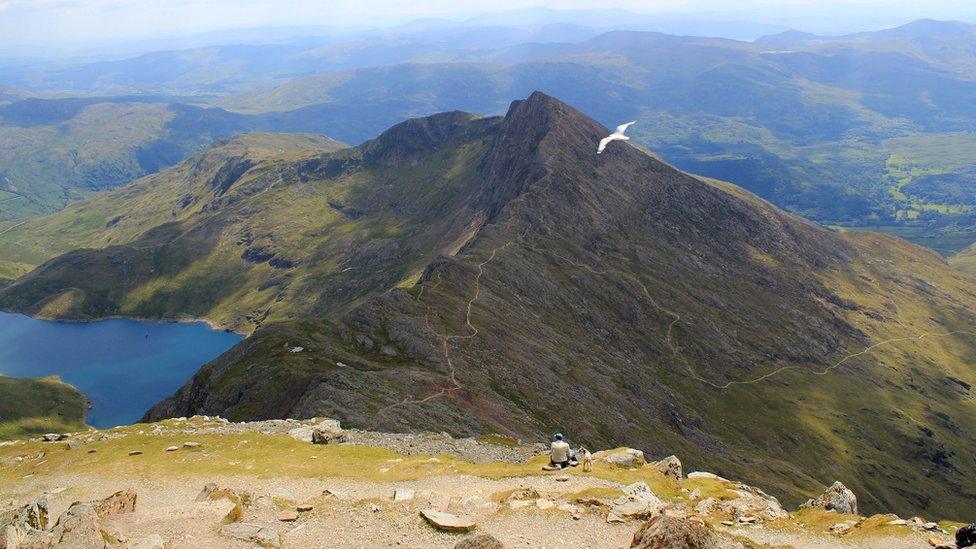Snowdon: Thousands back Welsh mountain name change
- Published
There have been mixed responses to the proposals to rename the mountain
More than 5,000 people have signed a petition calling for Wales' highest peak to be known by its Welsh name only.
A motion calling for Snowdon to go by Yr Wyddfa was discussed by Snowdonia National Park Authority in April.
But it was not considered because a working group is already looking at future policy on Welsh language names.
A petition containing 5,300 names has now been presented to the authority calling for it to make the change.
The motion was put forward in April by Gwynedd councillor John Pughe Roberts, who also wanted the national park referred to by its Welsh name, Eryri, and not Snowdonia.
He believed it would be "a real chance to make a statement on the need to protect our indigenous Welsh place names", according to the Local Democracy Reporting Service.
Previous efforts have been made to drop the English forms, including one from language group Cymuned in 2003. The group claimed the area only became known as Snowdonia due to Victorian day-trippers.

Snowdon - or Yr Wyddfa - is the highest mountain in Wales at 3,560ft (1,085m)
The park has confirmed it was presented with an online petition with signatures from "around the world".
Welsh language campaign group Cymdeithas yr Iaith said the change would provide a suitable response to the recent trend of anglicisation in parts of Wales.
"Attacks on the Welsh language is something consistent, this is seen when house names and names for different areas of Wales are changed from Welsh," said Elfed Wyn ap Elfyn, of Cymdeithas.
"I, and many others think that only using the names Eryri and Yr Wyddfa would be a positive step towards showing the importance of the Welsh language."
During its meeting in April, a vote saw authority members decide not to consider the motion due to a group already being appointed to look at the issue.

Mount Everest's Tibetan name is Chomolungma, meaning goddess mother of the world
It is tasked with establishing and adopting guidelines on the use of place names by the park authority.
The Welsh name for Snowdon, Yr Wyddfa, means grave and is pronounced like "er with-va".
The story goes in a legend that the giant Rhita Gawr, the king of Wales, was buried under a cairn of stones on the summit of the mountain, following a battle with King Arthur.
It is said that the giant defeated 30 kings of Britain, taking their beards to create a cloak of the beards, reaching from his shoulder to the floor.
Eryri is believed to originate from the Latin 'oriri' (to rise) and was first documented in the 9th Century, despite it long being thought to refer to the Welsh name for Eagle - Eryr.
The English forms of Snowdon and Snowdonia are thought to derive from the Saxon snow dune, meaning snow hill.
There is a precedent for the ditching of English place names for popular tourist attractions, with Ayers Rock in Australia now formally known by its Aboriginal name of Uluru.

WEATHERMAN WALKING: Explore some of the most spectacular scenery that Wales has to offer
LAND OF THE WILD: Uncover the world of Welsh wildlife like never before

Related topics
- Published28 April 2021

- Published28 April 2021

- Published22 May 2021
